7. The Man Who Wasn’t There
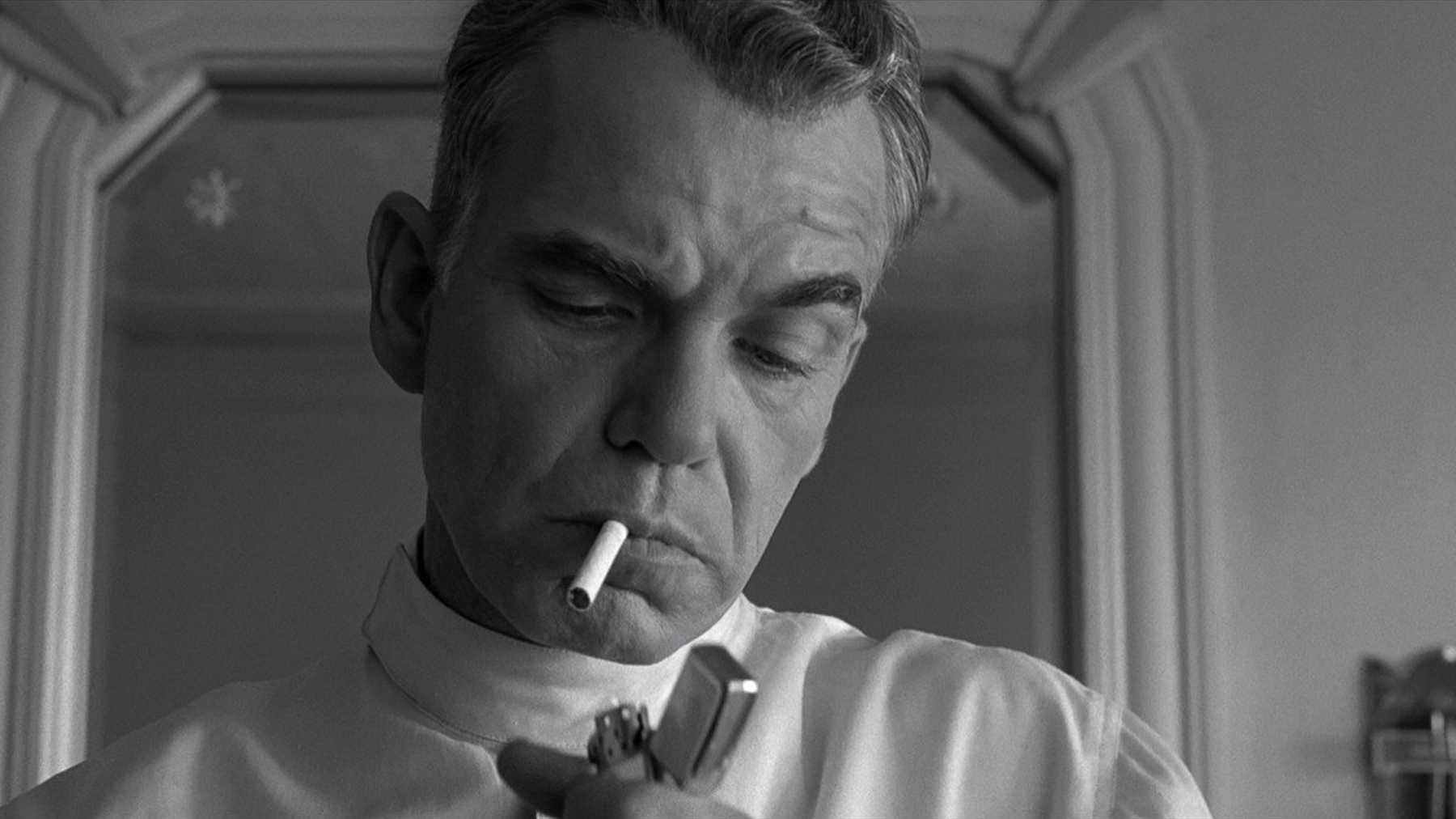
The Man Who Wasn’t There follows Ed Crane (Billy Bob Thornton), another example of a character truly alone in the world. Ed is a barber in a small Californian town, which is complicated for him when discovers that his wife (whose father is responsible for Ed’s successes as a barber) is cheating on him with her boss.
Ed decides to blackmail his boss to raise cash to pursue a (honestly completely false-sounding) business venture. As if this didn’t already sound like it contained all of the tropes of your normal Coen film, when everything begins to fall apart viewers are rewarded with cinematic artistry, brilliant humor, and provocative lines lifted straight from Soren Kierkegaard.
Partially thanks to his loneliness, Ed is caught in despair and is drifting along through life aimlessly. The tales of how he got his job, how he met and married his wife, and just how he has formed his outlook on life scream of an uncontrolled wandering lifestyle, even though Ed seems calm and collected in nearly every scene (hey, it’s the Billy Bob Thornton way!).
Viewers are rewarded though, despite it coming to Ed’s being on death-row, by an attitudinal change in his character, as we hear that Ed has come to peace with his lot in life and, to some extent, with the actions he has taken to get to that point. He claims that as he “pull[s] away from the maze” and sees “it whole”, his life takes on a new meaning and new perspective that is tolerable for him.
Of course, this is Kierkegaard’s contrast in The Sickness Unto Death between the higher and lower forms of despair. Unfortunately, while Ed is now finally very much aware of his despair, the Coens have put him in a situation in which it’s pretty much impossible for him to do anything about it.
8. No Country for Old Men
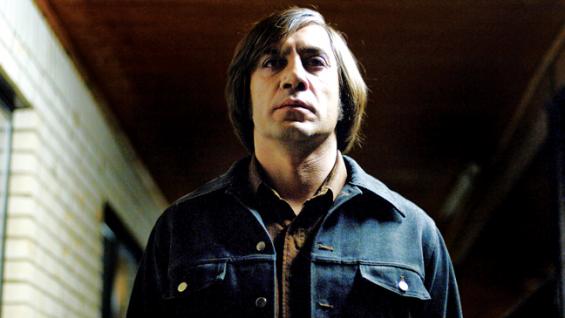
From there, the next major Coen success would be their adaptation of the Cormac McCarthy novel No Country for Old Men, a deeply troubling tale filled with nihilism and a critical view of human nature. The film follows Llewelyn Moss (Josh Brolin) after he discovers a drug deal gone wrong and discovers the payment for those drugs (still intact and ripe for the taking).
A killer, Anton Chigurh (Javier Bardem), is on his trail, trying to track down the money and simply killing everyone in his path. Meanwhile, Ed Tom Bell (Tommy Lee Jones), the sheriff in those parts of Texas, is struggling to come to terms with the nature of such vicious crimes. Simply put, he wonders how anyone can do such deeds without any remorse. And viewers must ask what, if anything, is a man from a bygone era of morals and honesty to do in the face of such ruthless and indiscriminate evil?
The answer, of course, is not so simple for Ed Tom. While the Coens spend less time focusing in on Ed Tom, the time they do spend is quite significant, as he is the only one in the film in a position to make sense of everything. We as viewers see horrific atrocities on the screen without any music and often without any reaction from Anton.
Why? This is the nihilism that the Coens are accused of promoting. Is this depiction a promotion though, or are they are struggling to come to terms with the evil in the world themselves as post-modern filmmakers, much like Ed Tom struggles to understand or even to keep doing his job. Everything seems so absurd that it’s inexplicable and truly nonsensical. This is perhaps best illustrated by the opening lines Ed utters:
I don’t know what to make of that. I sure don’t. The crime you see now, it’s hard to even take its measure. It’s not that I’m afraid of it. I always knew you had to be willing to die to even do this job. But, I don’t want to push my chips forward and go out and meet something I don’t understand.
9. A Serious Man
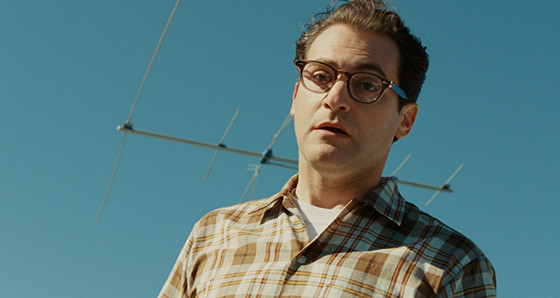
In some ways, A Serious Man is the most overtly philosophical of any Coen film. It is definitely the most existential, and has been labeled by some to be one of the more nihilistic films that the Coens have made.
It follows Larry Gopnik (Michael Stuglbarg), a physics teacher somewhere in the Midwest, whose life is slowly unraveling. His wife leaves him for another man, his children constantly misbehave and cause him grief and trouble, his brother sponges off of him and is up to no good too, and his job is a point of personal contention.
Because of all of this (and more), Larry begins to slowly lose his faith in God and the Jewish tradition. Everyone surrounding him seems to be faithless anyways, both in word and deed, and his meetings with different Rabbis continually disappoint him.
What is the film all about? Well, as evil continues to shroud Larry’s life, he begins to question whether or not God exists and, if he does, why he allows Larry to endure such trials. The age old question of the Problem of Evil is no stranger to film, but the Coens do admittedly take a rather cynical approach to it (especially after No Country’s release), having the key Rabbis in Larry’s life merely say that they “don’t know” and don’t think we’re meant to understand the evil that is everywhere.
These Rabbis say Larry just needs a fresh perspective and must remain faithful to God and his faith. Of course, it isn’t that easy to remain faithful, but Larry does try pretty hard throughout the film. His dialectic of faith is never fully resolved, and in the end we see what is potentially the greatest trial yet barreling towards him, visibly manifested as a tornado. It’s as if the Coens were trying to say: sometimes life just gives you lemons.
10. True Grit
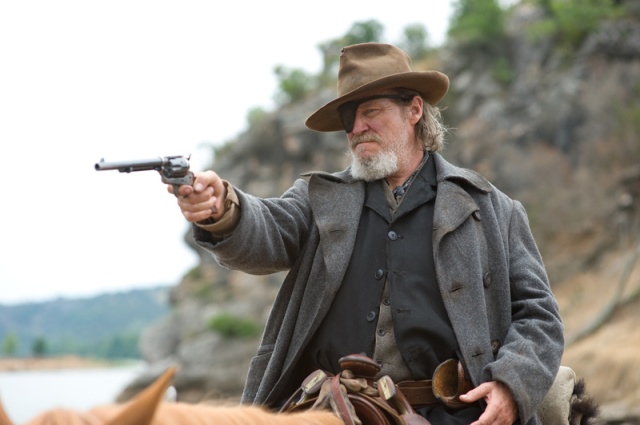
True Grit, the next Coen film, met with more success than A Serious Man and is a return, after No Country for Old Men, to the western genre. The film follows Mattie Ross (Haileen Steinfeld) as she hunts down her father’s murderer alongside US Marshall Rooster Cogburn (Jeff Bridges) and Texas Ranger LaBoeuf (Matt Damon). An interesting and complicated tale of revenge, it is a remake of the original John Wayne film that met with great success decades ago.
The film is mostly about revenge, like the original and like most John Wayne westerns. In that sense, it pales in comparison to The Searchers or other masterpieces before it. However, this version of the film takes on a new element with the Coens, as we see and feel the loneliness of Mattie. She is alone after her father’s death most obviously, but she is often alone in her quest to kill her father’s murderer and in the closing scenes.
This, one might argue, isn’t so different from the original, but the Coens have a way of using dialog, cinematography, and even music to emphasize the nature of her loneliness and to accentuate it. She knows that if anything is to be done it must be done by her. It’s for this reason that she’s able to claim:
You must pay for everything in this world, one way and another. There is nothing free except the grace of God.
11. Inside Llewyn Davis
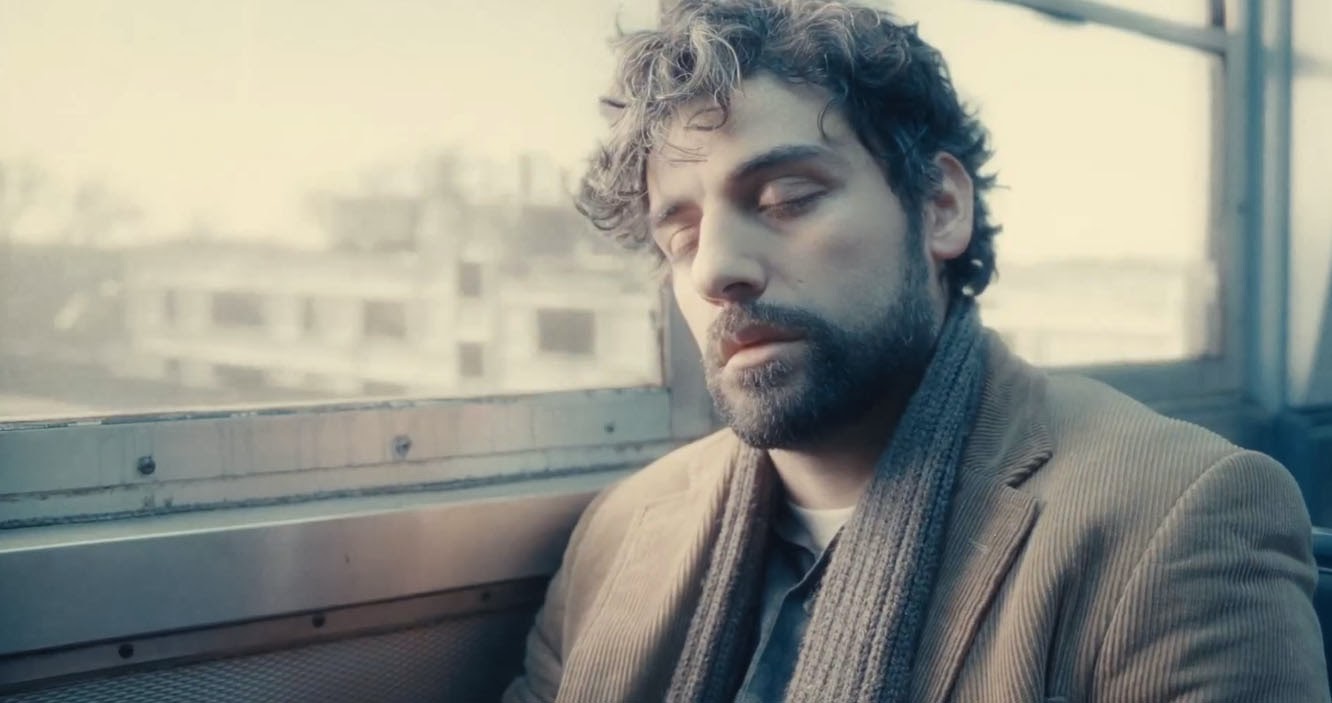
Inside Llewyn Davis is a return to the folk music scene, like O Brother Where Art Thou?, and is also deeply philosophical. It follows folk singer Llewyn Davis (Oscar Isaac) for one week in the burgeoning music scene of Greenwich Village, NYC in 1961.
As viewers we see Llewyn struggle throughout this week, bouncing between gigs, relationships, and even abodes (the dude sleeps on people’s couches almost professionally), while chasing a mysterious and elusive cat. What, exactly does the cat mean and, moreover, what is the film about?
Both the cat, from Llewyn’s perspective at least, and Llewyn are struggling to find their identity. Lleywn, a folk singer who both insists that music is “how [he] pay[s] the rent” and also does it recreationally at times, seems all-too content to run from his problems, just like the cat that he watches for the Gorfein’s continually runs away from him and them.
However, Lleywn is never able to escape. His sister throws away his seaman’s license, he has never paid his dues to the Merchant Marine Union he wants to join, and his attempts to break into the folk scene in Chicago fall through. Ultimately, he has to return to Greenwich Village and attempt to come to terms with his existence as a mediocre singer and songwriter.
This proves to be no easy task, as he is continually struggling to come to terms with the suicide of his former partner, Mike Timlin. So, what does he do? He acts rashly and childishly instead of confronting his life, and thus he winds up lying on the street beaten up by a total stranger. A sad fate indeed.
12. Hail Caesar!

Hail Caesar!, the latest Coen film, is no exception to their usual humor and depth. In this case, much of the humor is directed at philosophy itself. The plot is hard to summarize succinctly, but basically viewers follow Eddie Mannix (Josh Brolin), an executive working hard to keep things moving in the film industry in a chaotic 1950s Hollywood.
The crisis he currently faces is that an actor, Baird Whitlock (George Clooney), has disappeared from the set and hasn’t been seen in some time. In truth, Baird has been kidnapped by Marxist screenwriters and is being taught in the ways of Hegelian dialectics, all while these screenwriters and Burt Gurney (Channing Tatum), another major actor for Mannix’s company, communicate with and work for the Soviet Union.
Hail Caesar! deals with a number of philosophical issues, but its primary focus is on the Marxist undertones of Hollywood screenwriting during the 1950s. In truth, a number of famous screenwriters from the time were supposedly part of the communist party, and so the Coens are using this fact to make a broader point about ideology.
Clearly, Baird Whitlock doesn’t seem to understand dialectics or Marxism, but moreover most of the screenwriters pretending to educate him don’t seem to really understand things that well either. Unlike Larry Gopnik, Ed Crane, or Everett, the characters in Hail Caesar! are unable to ultimately see the big picture and become mindless victims of an ideology, just like Barton Fink, H.I. McDunnough, or even arguably Anton Chigurh.
And, unlike these characters, there are no events in Hail Caesar! suitable to shake them to their knees and bring them to their senses. Perhaps this is the most damning criticism of Hollywood yet, though one must wonder just how accurate it is.
Author Bio: Ben Wilson is a recent graduate of Yale College, where he studied Philosophy and Political Science. A film buff and addict, he views film as the proper medium for philosophy in the 21st century.